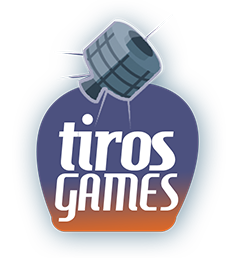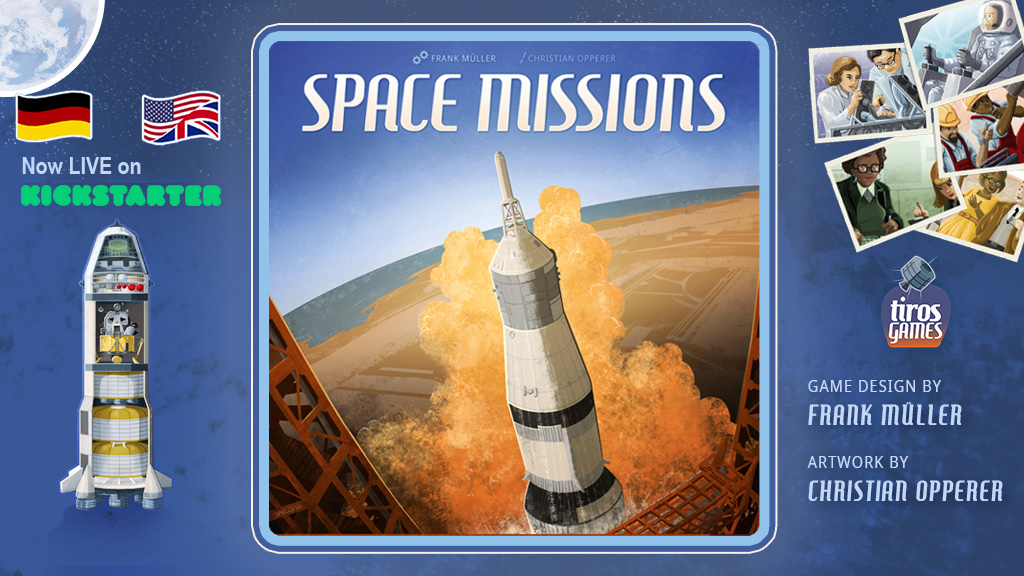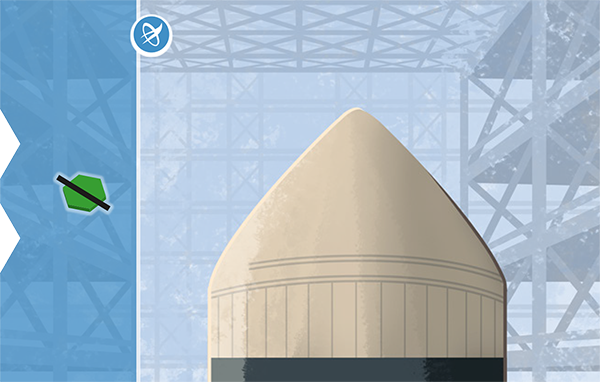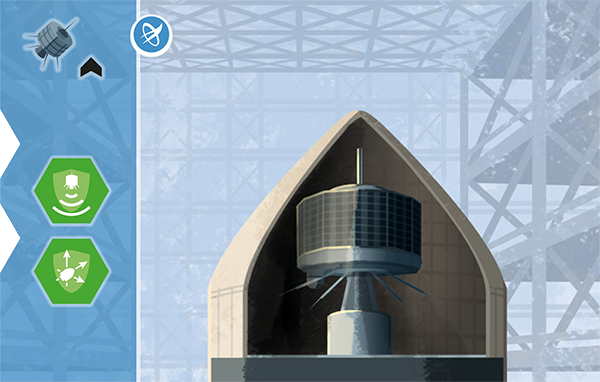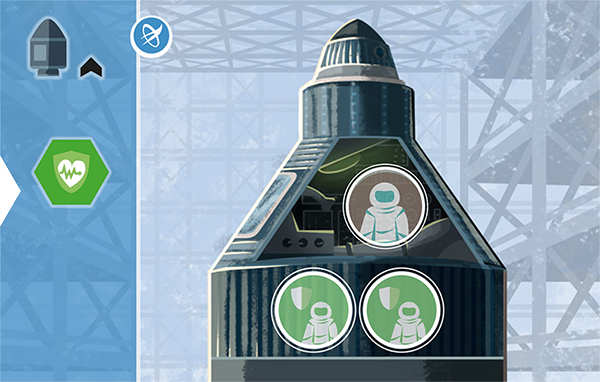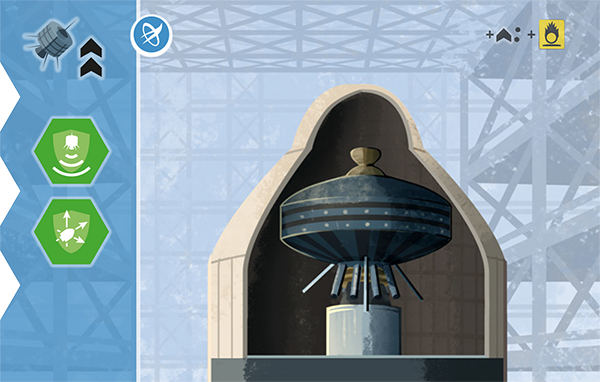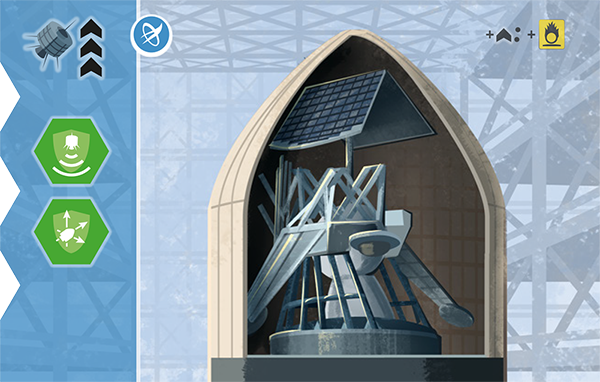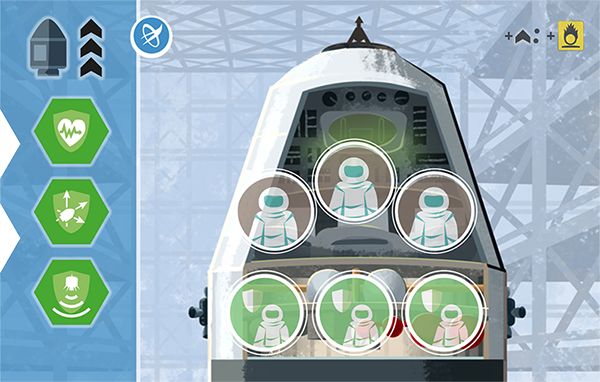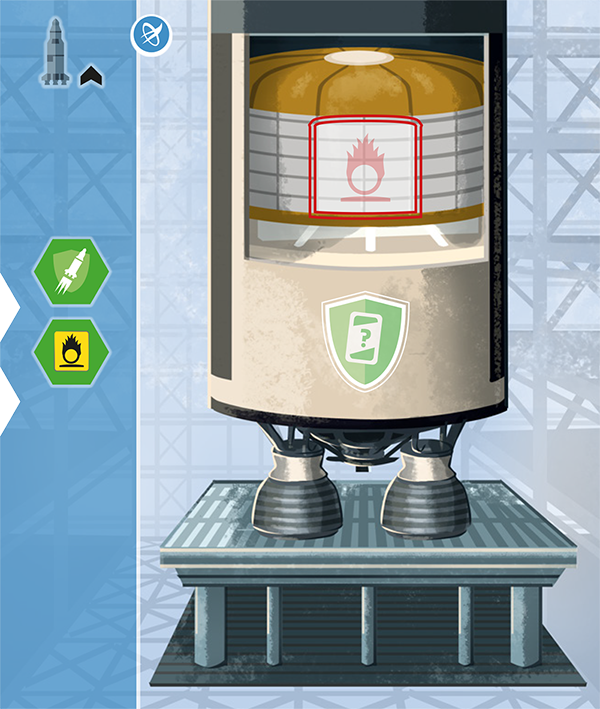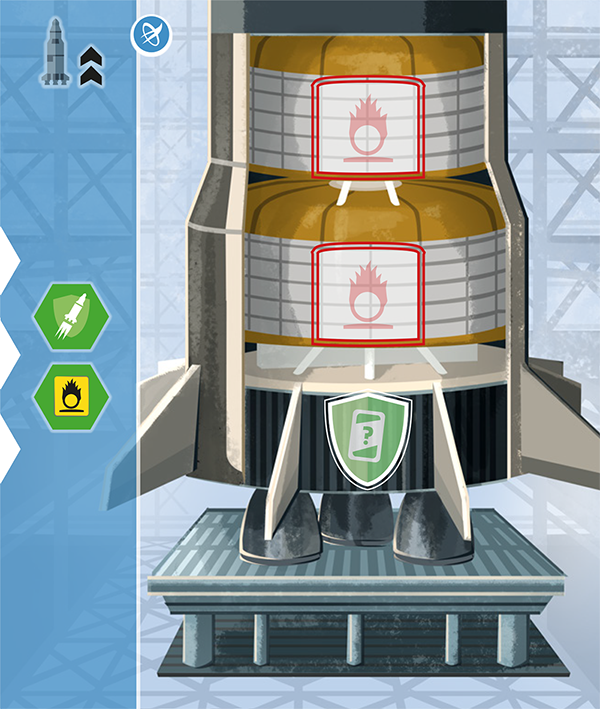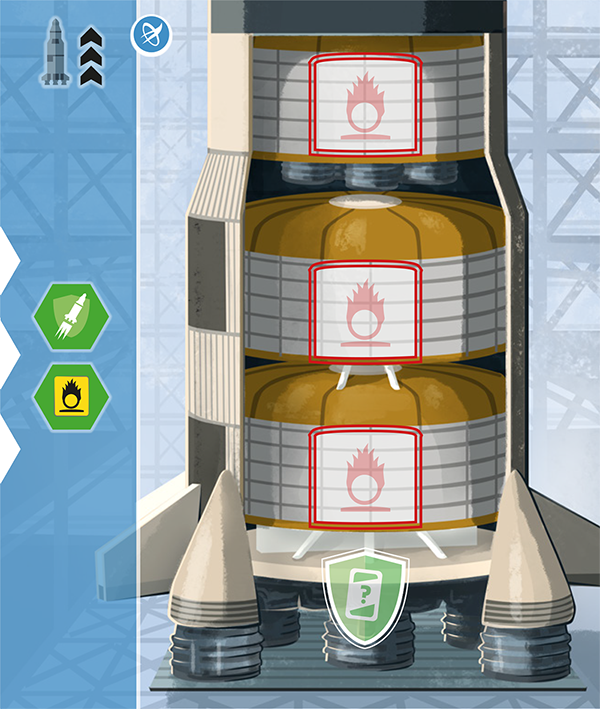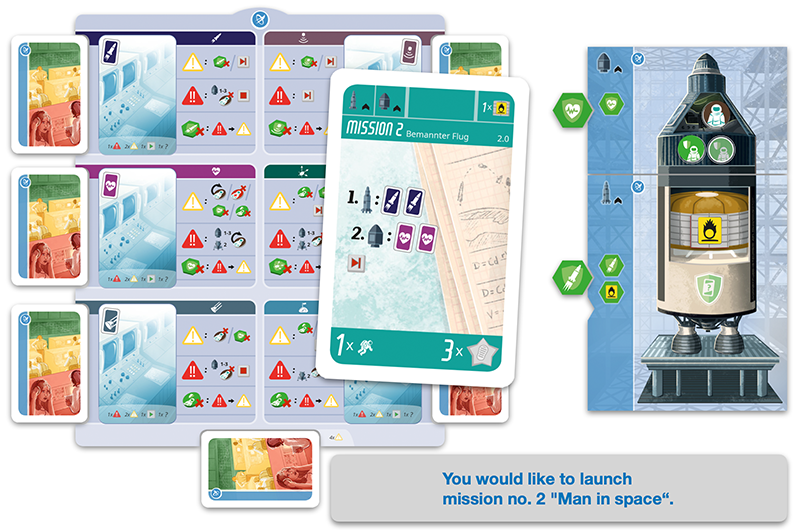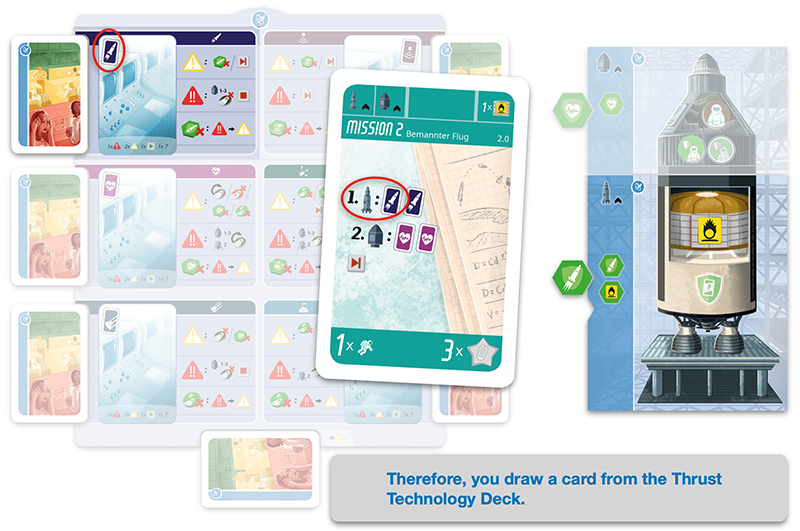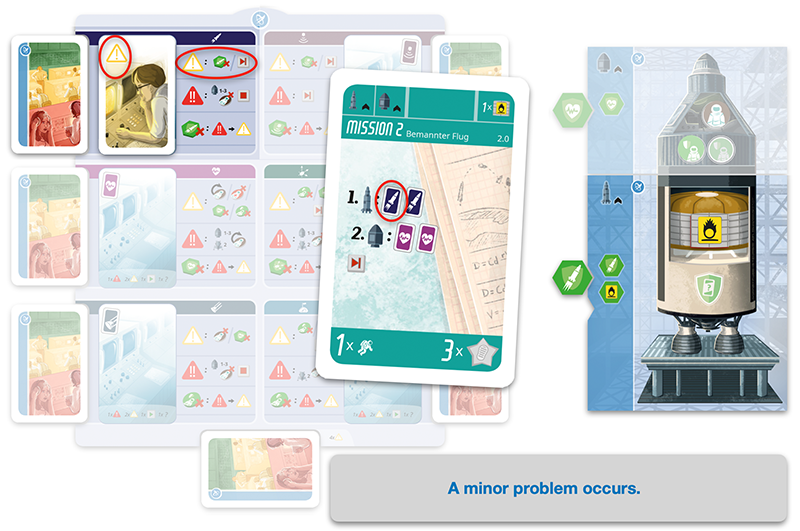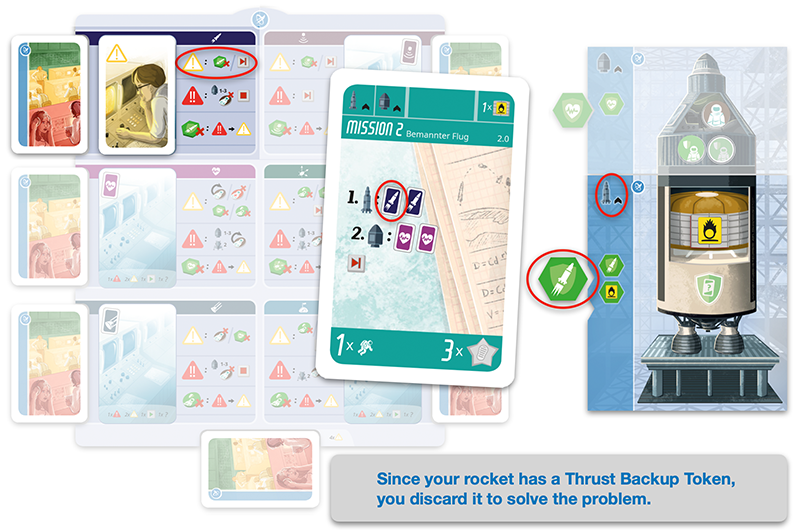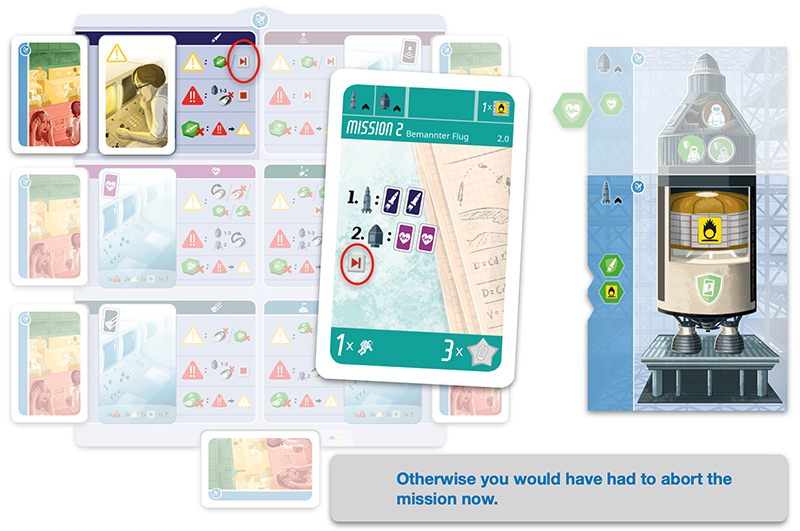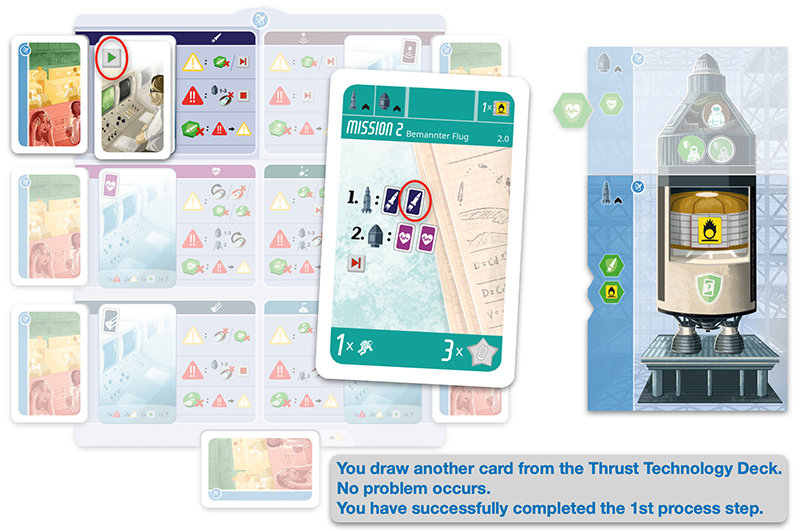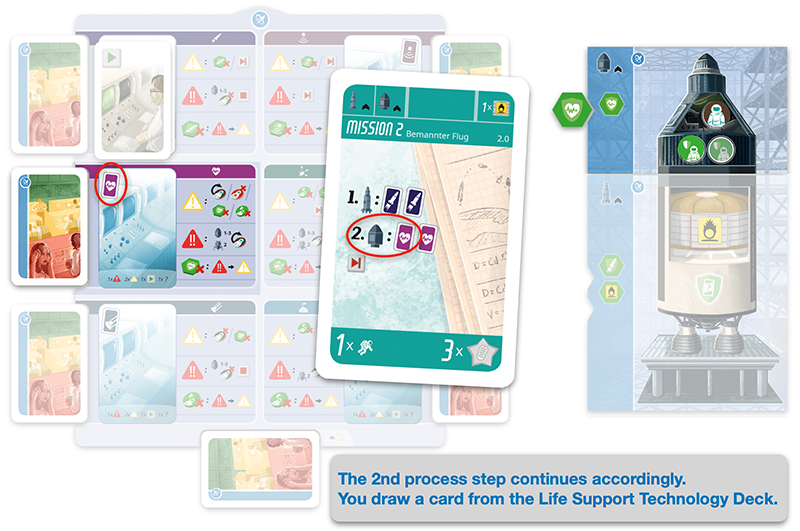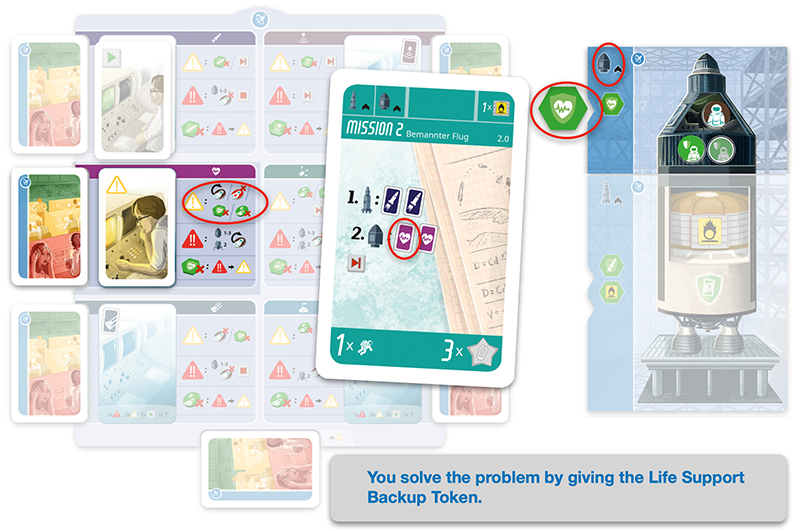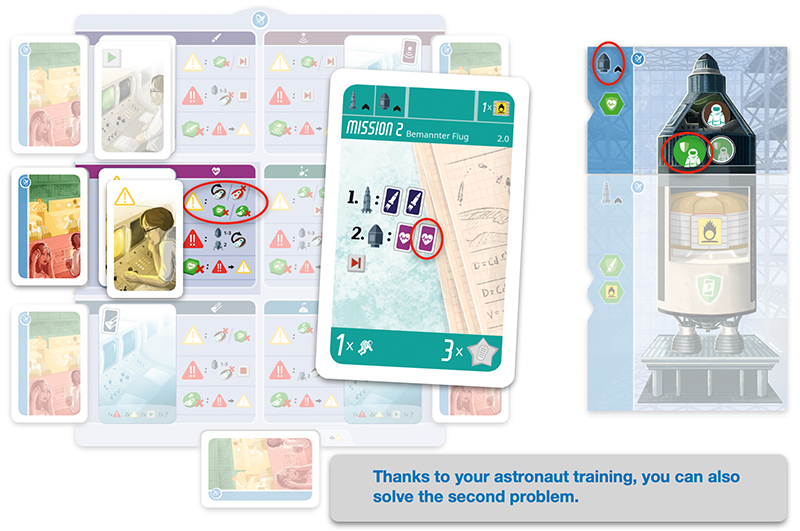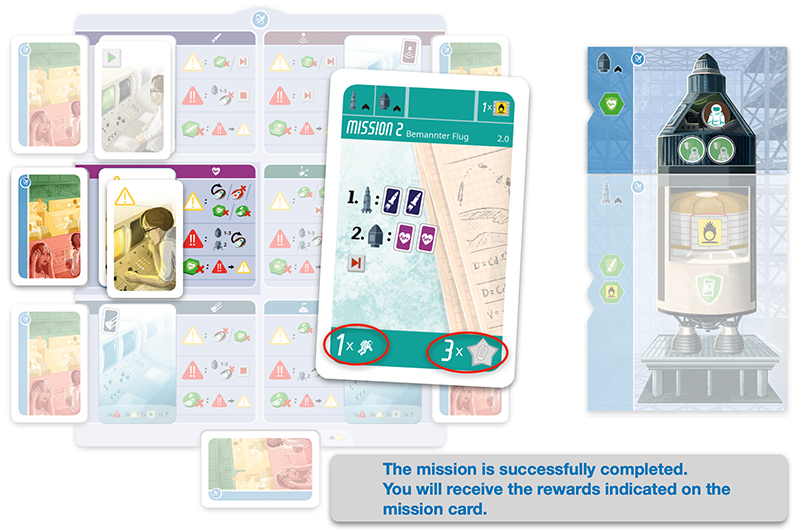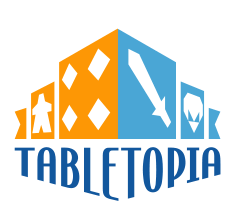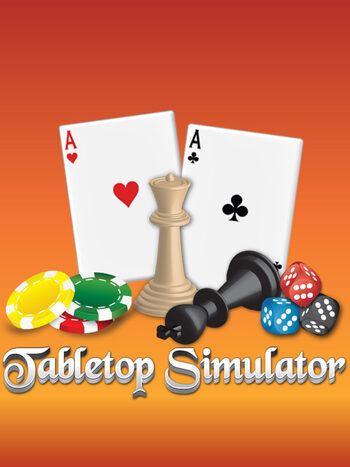1969 - the year when man reached the moon. You will experience the time before the manned lunar landing as a member of a space agency. You'll train astronauts, assemble rockets and launch them into space. The ultimate goal is to successfully land on the moon. If you test your systems well and train your crew for all situations, you have a good chance of getting there. However, you must always be prepared for unpredictable challenges.
Who will be the first to get their astronauts not only safely to the moon, but also just as safely back to Earth?
Using a new deck sizing mechanism, you optimize several decks at once, which will determine the success or failure of your space missions.
Space Missions is a competitive board game for 1 to 4 experienced players aged 14 and up. Play time is approximately 60 to 90 minutes. The game material is language independent and optimized for players with color vision deficiencies. The game rules are available in German and English.
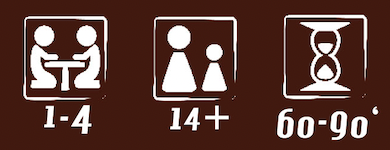

Get your game now. Click here for the Kickstarter campaign:
What's in the box
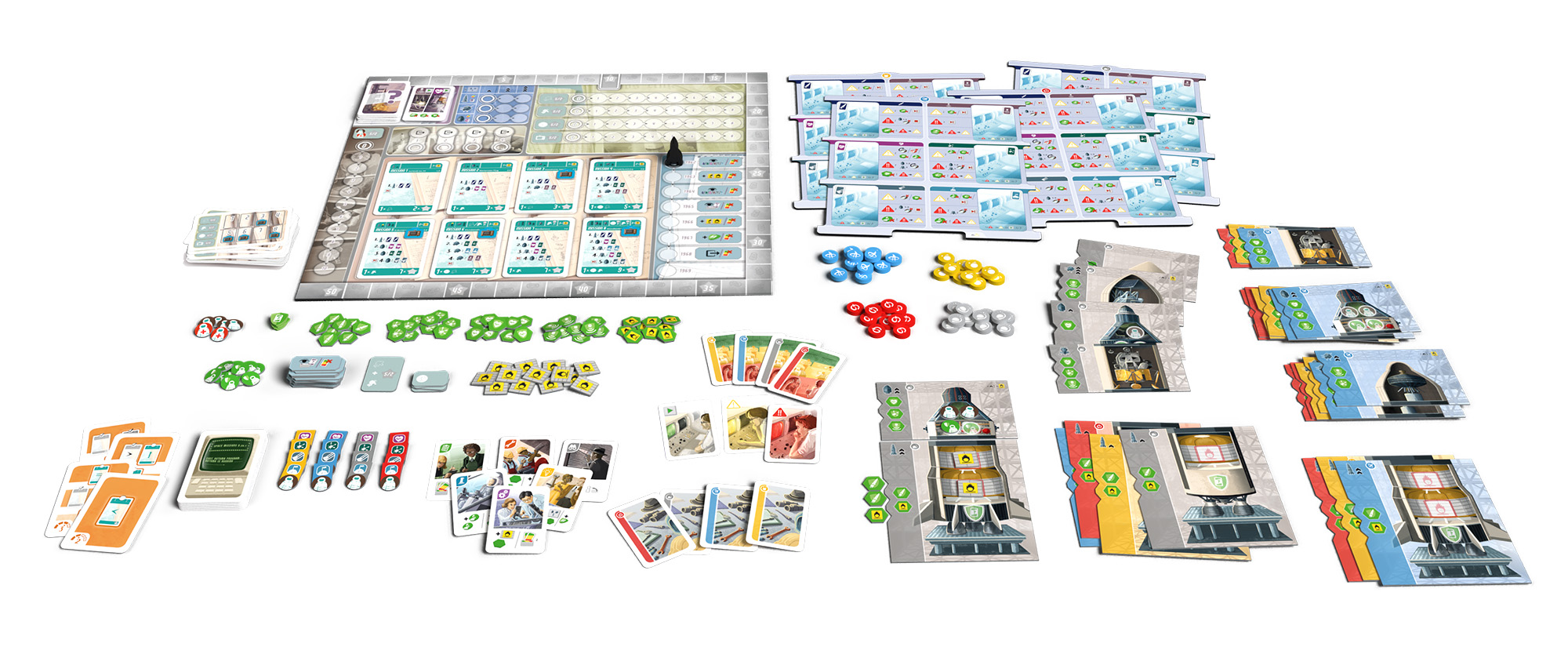
- 1 Game board
- 4 Mission Control Boards
- 28 Spacecraft
- 22 Mission Cards
- 11 Scenario Cards
- 136 Mission Control Cards
- 24 Specialist Cards
- 12 Event Cards
- 50 Enhancement Tokens
- 16 Fuel Tokens
- 4 Inspection Tokens
- 28 Astronaut Tokens
- 12 Training Tokens
- 8 Media Tokens
- 10 Bonus Tiles
- 5 Scoring Tiles
- 28 Player Markers
- 1 Year Marker
- 12 Automa Cards
- 4 Player Aids (ger. / engl.)
- 1 Rulebook (ger. / engl.)
Material and equipment are subject to change without notice.
Videos
Trailer (english)
Tutorial (english)
How to play
In Space Missions the challenge is to be the first to successfully complete space missions. The game ends with the completion of the round in which the first player has successfully completed mission #8 "Lunar Landing". The game also ends after 8 rounds at the end of the year 1969. The player with the most victory points wins.
Round sequence
- Perform actions (one after another)
- Reorder Sequence Markers
- Announce missions (one after another)
- Prepare missions
- Trigger event
- Perform missions
- Complete missions (one after another)
- End of round
Specialists
With the help of specialists you prepare a mission every turn. In total, there are 6 different specialists with 10 different actions. You can get fuel for your rocket, train astronauts, increase the reliability of technologies, create enhancements or develop spacecraft.
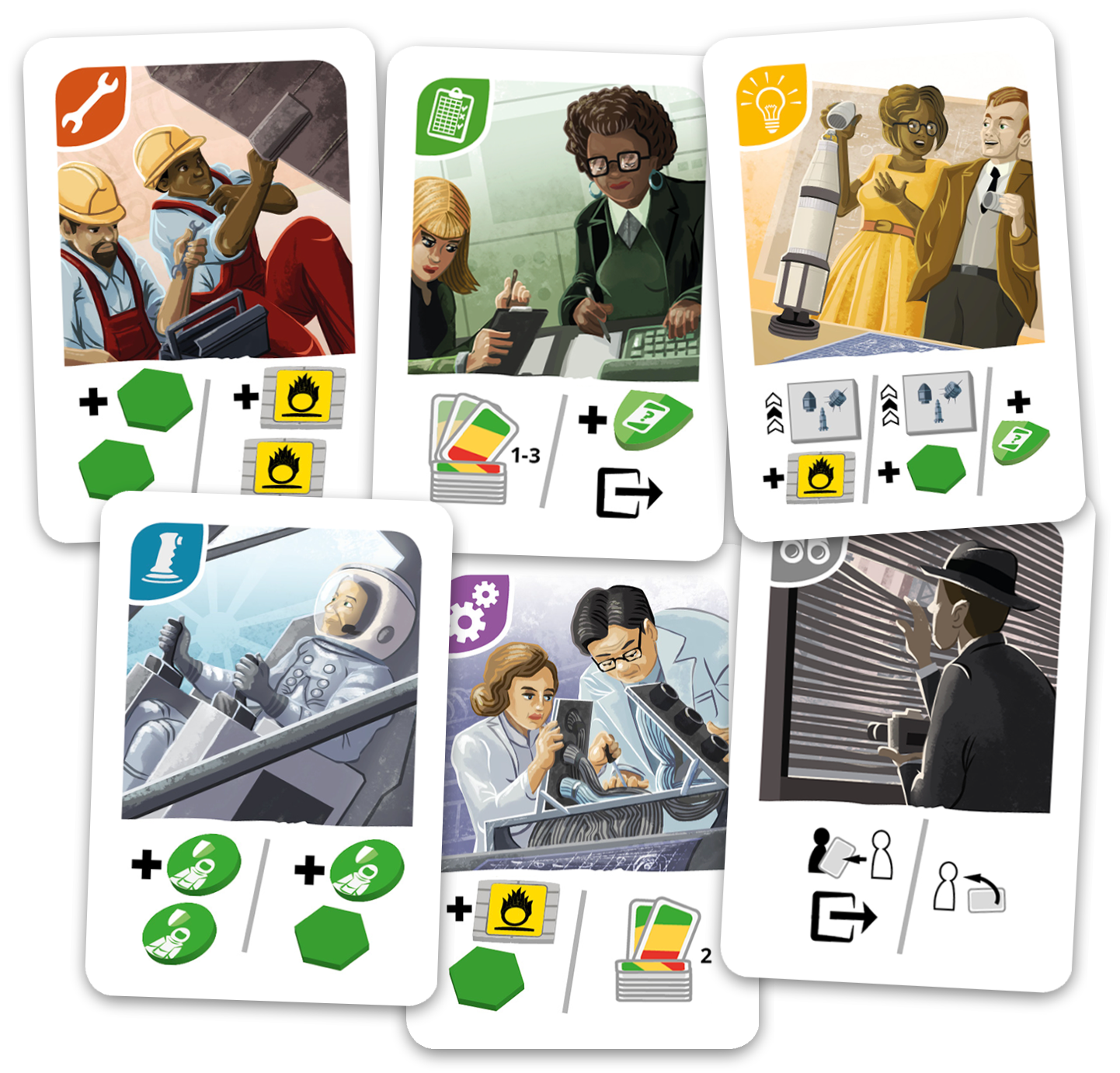
You play 1 specialist card at a time, one player after the other. You keep doing this until everyone has played 5 cards, or passed.
Early passing influences the player order, which is already important for the subsequent start of the missions, if several players perform the same mission.
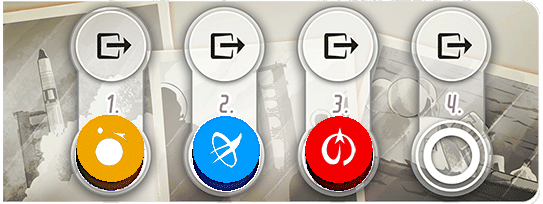
Missions
You receive victory points for completing missions. There are 8 different missions in each game. Which missions you carry out and in which order is largely up to you. Depending on whether you complete a mission first or after other players, you will receive more or fewer victory points.
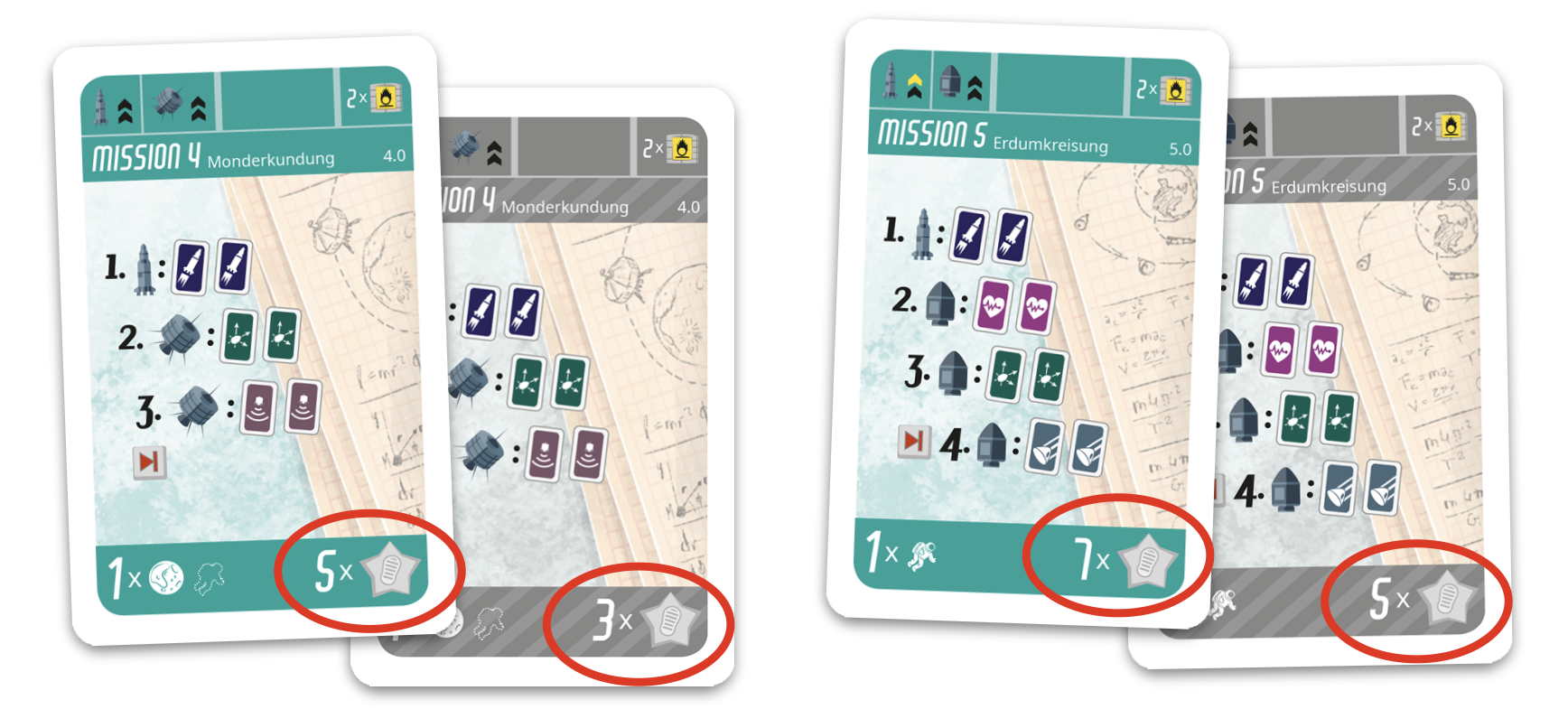
For manned missions you get additional victory points per astronaut - as long as you bring your astronauts back safely to earth. If not, points are deducted.
Each mission belongs to one or more categories: unmanned, manned, moon, media. At the end of the game, you receive additional victory points if you have successfully completed the most/second most missions in a category.
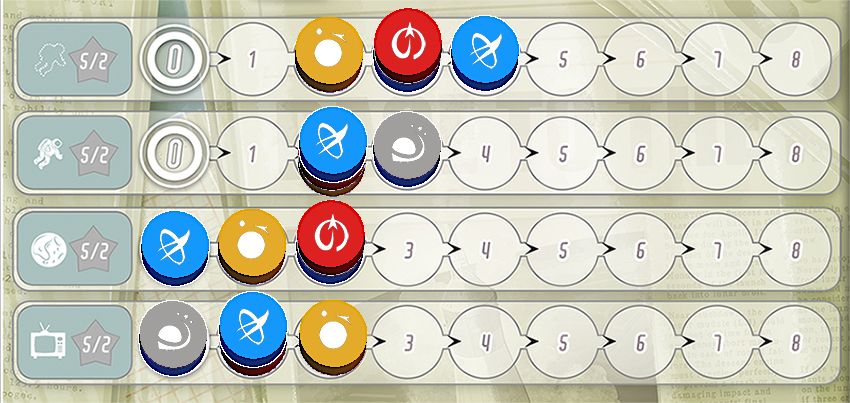
Media missions are special because they vary from game to game, and only the first player to successfully complete a mission can count it as a media mission.
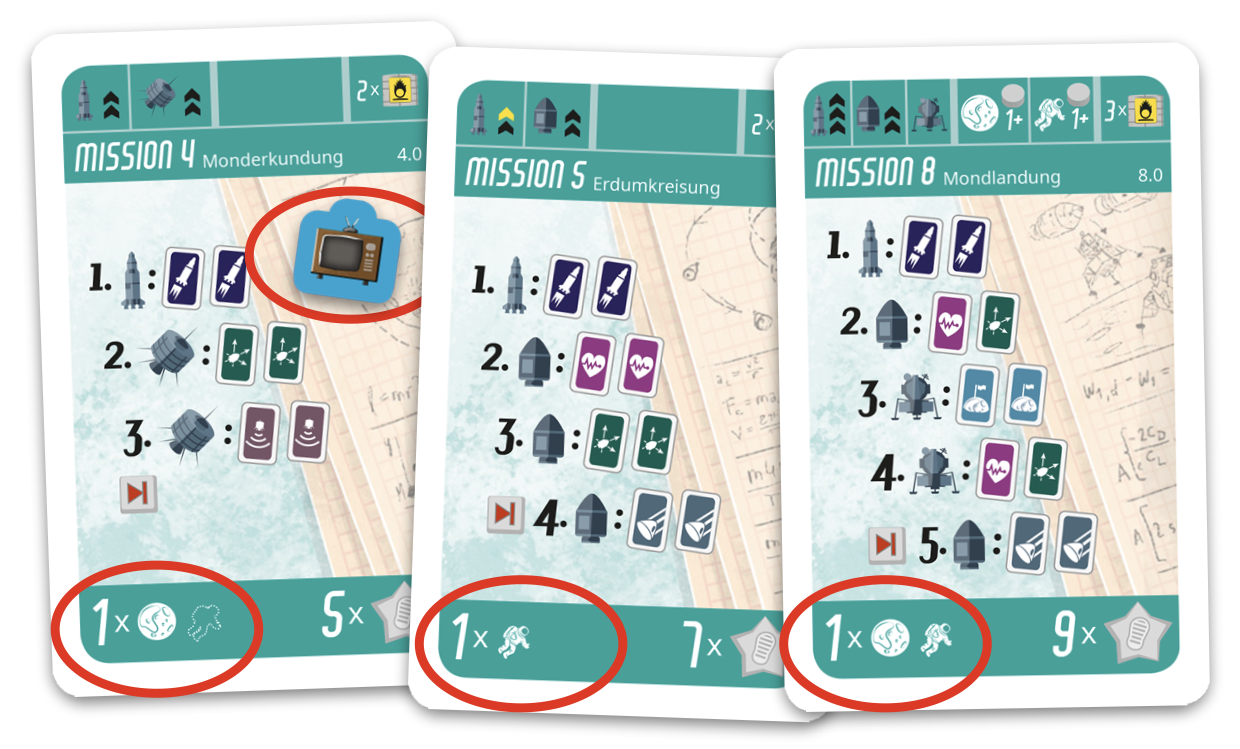
There are some missions that require you to have already successfully completed missions in certain categories before you can start them.
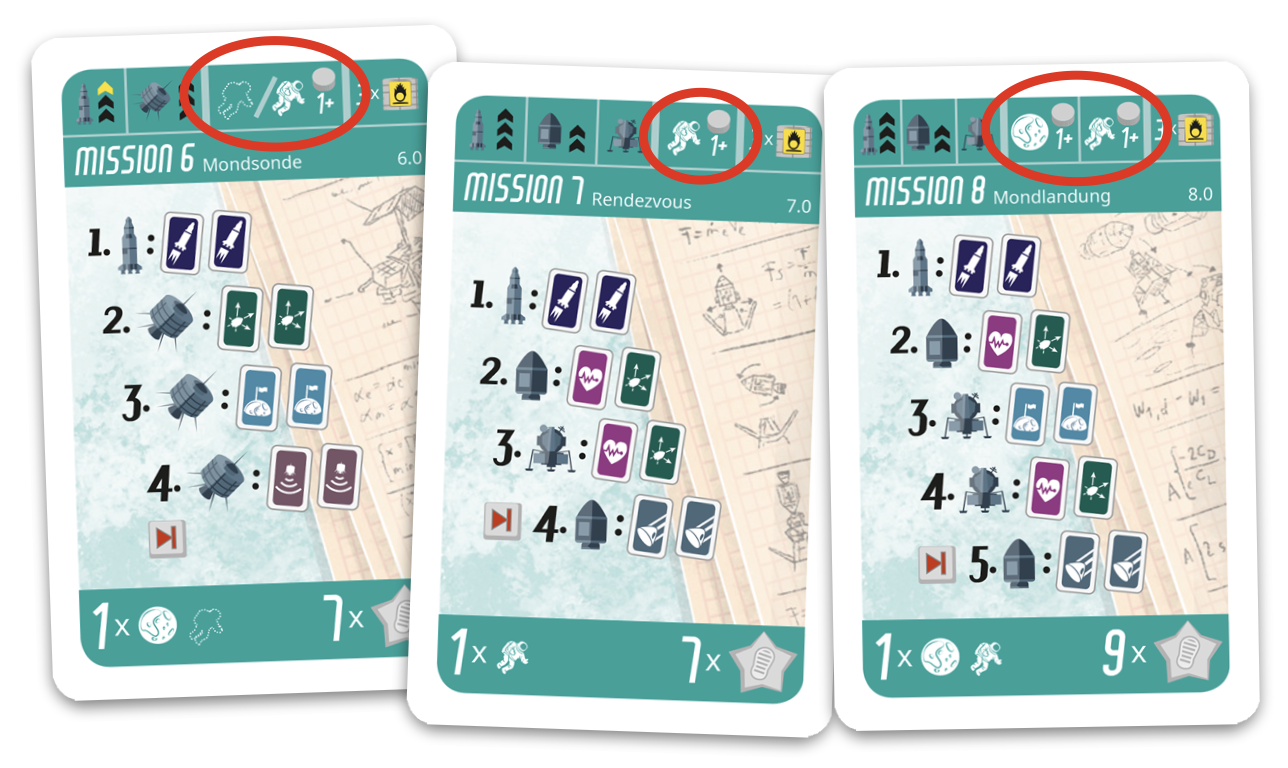
Technologies
1 to 6 technologies are required per mission. Each technology is represented by a deck of cards on the mission control board. There are 6 technologies in total.
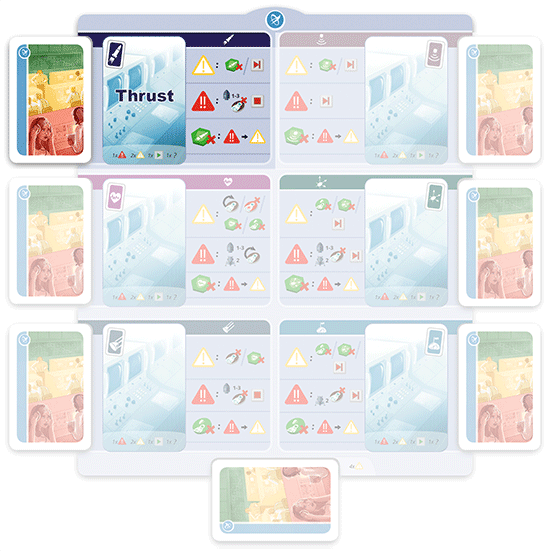
All technologies are unreliable from the beginning of the game. The decks contain more or less mission control cards with problems. You can permanently eliminate them in various ways or temporarily solve them during a mission.
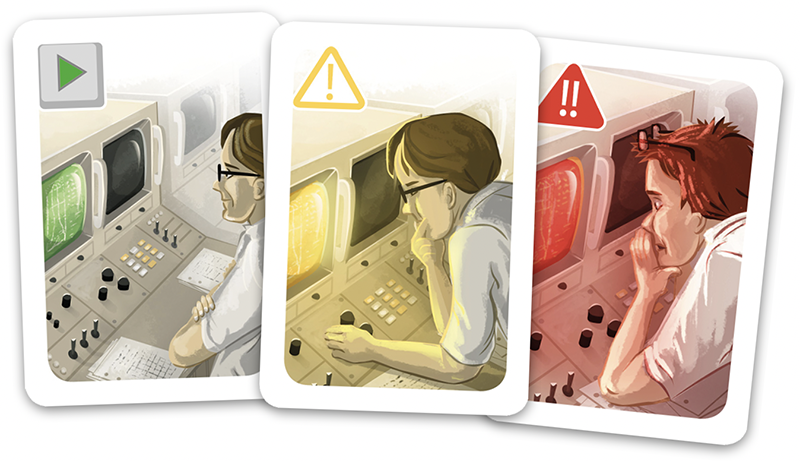
Spacecraft
At the start of the game, each player owns all spacecraft (rocket, satellite, capsule, lunar module) in the basic version.
The spacecraft can be developed up to level 3. Depending on the mission, different spacecraft in certain development levels are required.
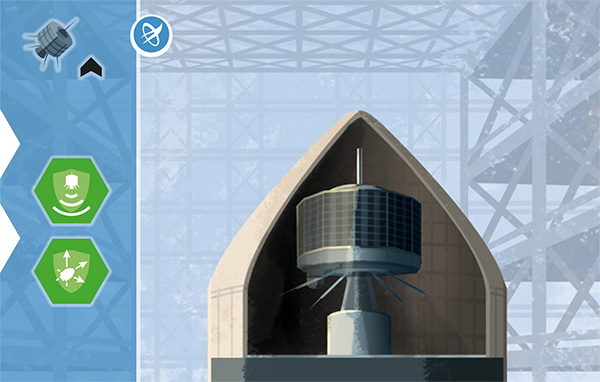
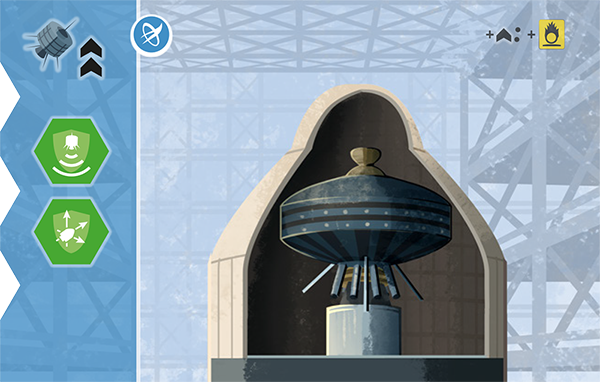
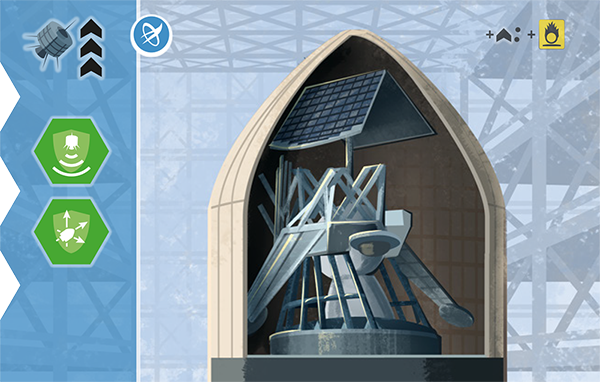
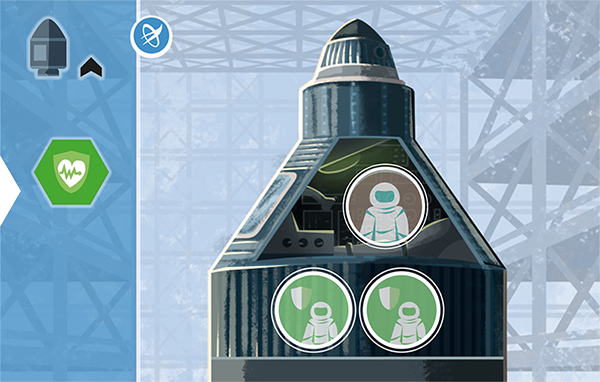
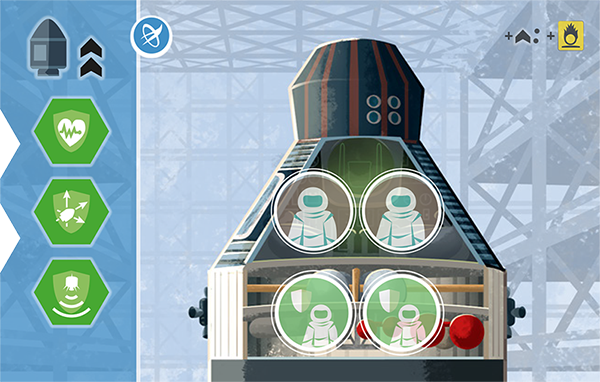
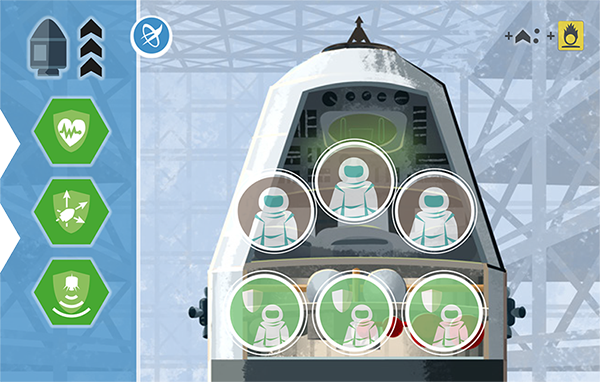
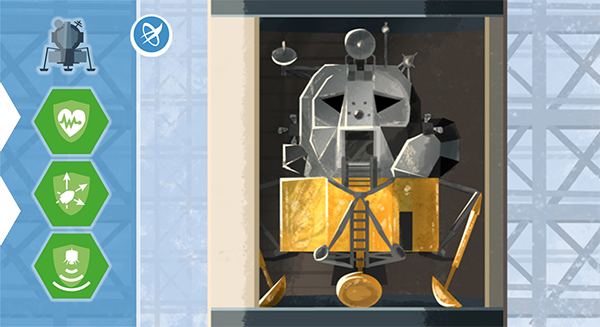
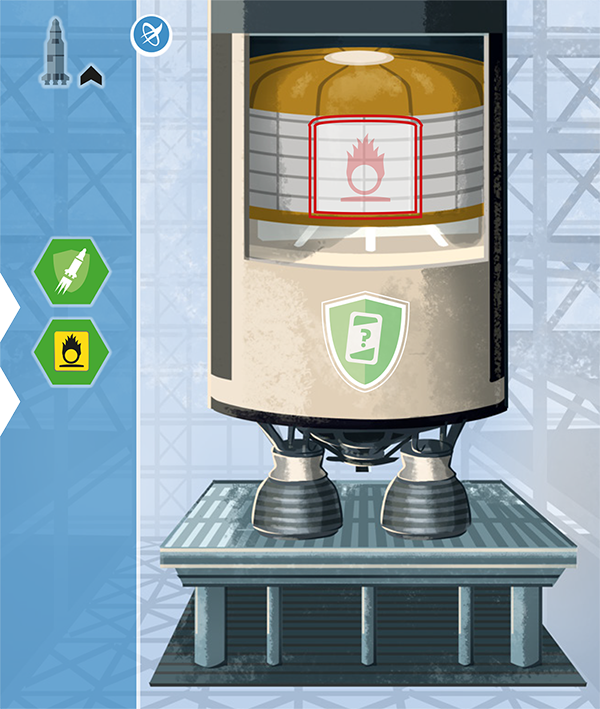
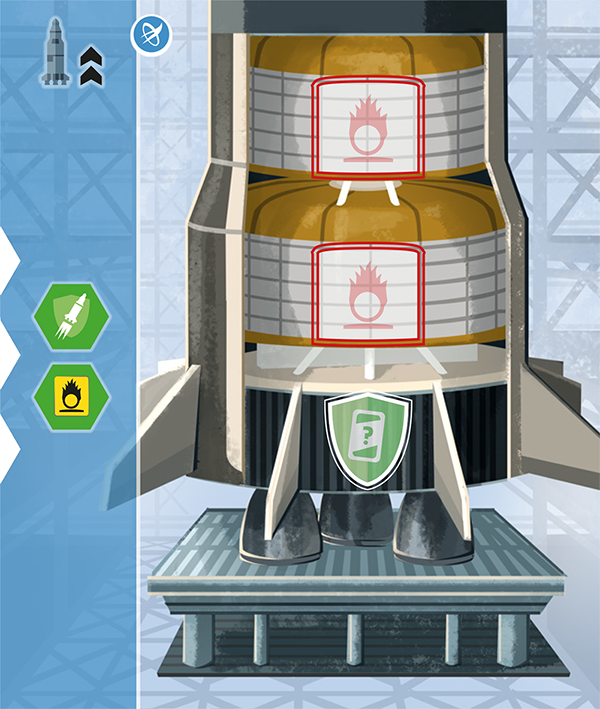
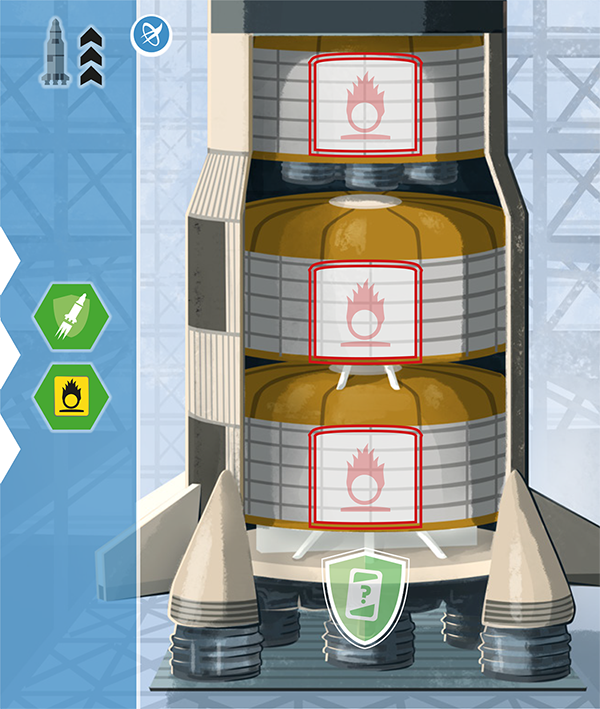
Enhancements
With the help of enhancements, problems that may arise during the mission can be solved. They also enable a rocket to carry heavier loads or to transport them to other orbits. Depending on the stage of development, the spacecraft can accommodate a different number of enhancements.

extra tank
containing fuel

thrust
backup

life support
backup

control
backup

sensor
backup
Events
Unpredictable events can have an impact on the upcoming missions. One event card is revealed each turn. An event may damage a backup system and make it unusable. Sometimes an astronaut gets space sickness and is then unable to solve problems during the mission.
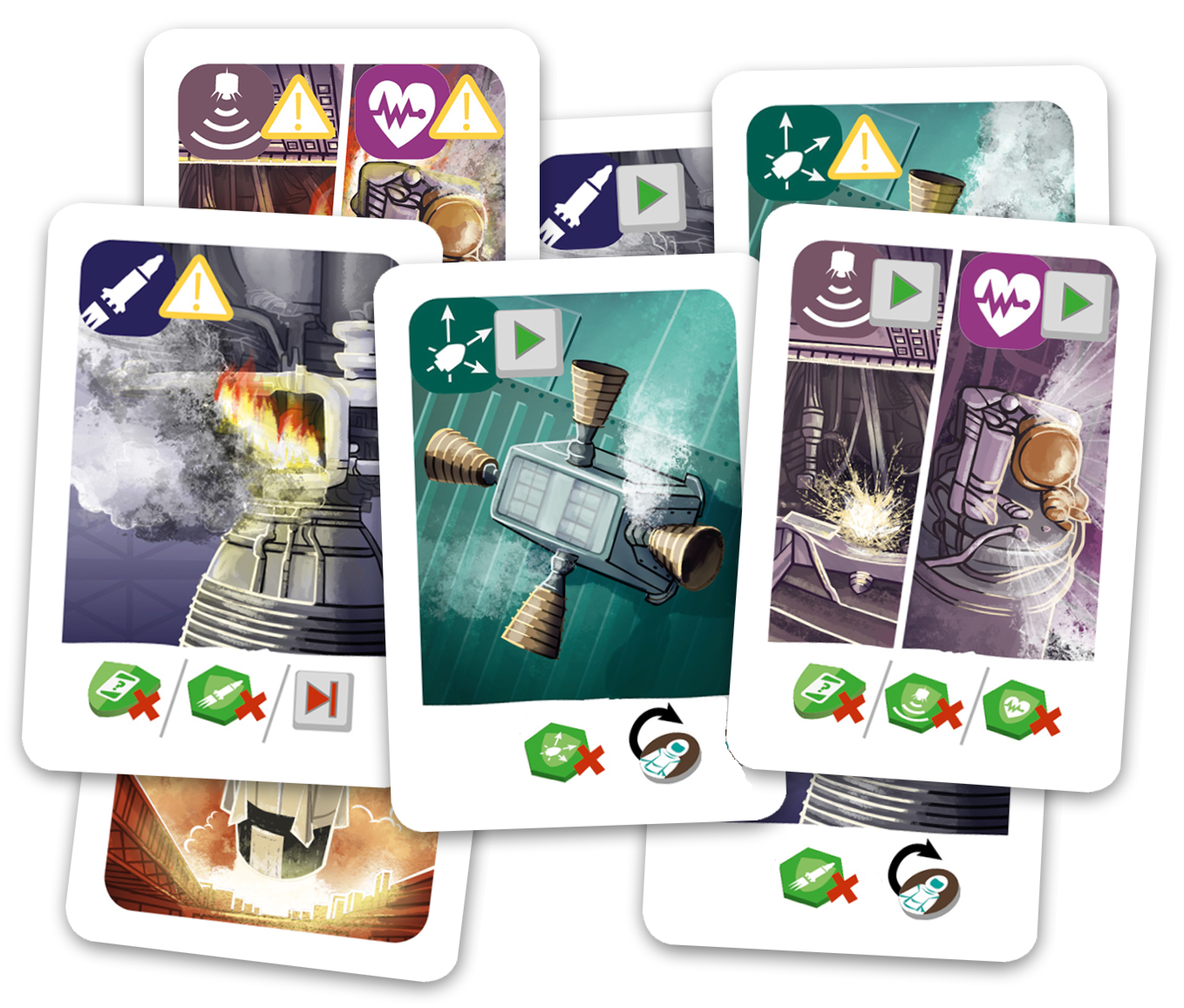
Perform a mission
Missions are processed from top to bottom and from left to right by drawing 1 Mission Control Card from the corresponding technology deck. Problem cards can be revealed in the process.
Depending on the type of technology involved and the severity of the problem, the impact on the mission varies, but can be solved by backup systems or well-trained astronauts.
Variable game setup
The game setup varies from game to game. In addition to the variable reliability of the technologies and the numerous events, various scenarios, missions and bonuses provide plenty of variety. The combination of missions and scenarios alone results in 22,680 different variants in the game setup.
Missions
From the total of 22 different missions, only 8 randomly selected missions are used per game.
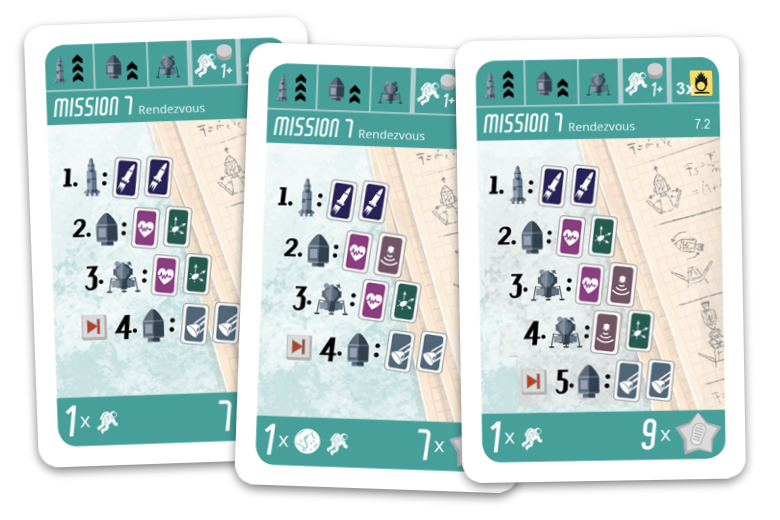
Scenarios
Scenario cards are used to determine both the media missions per game and the categories for which you will receive special victory points at the end of the game. There are 21 different scenarios.
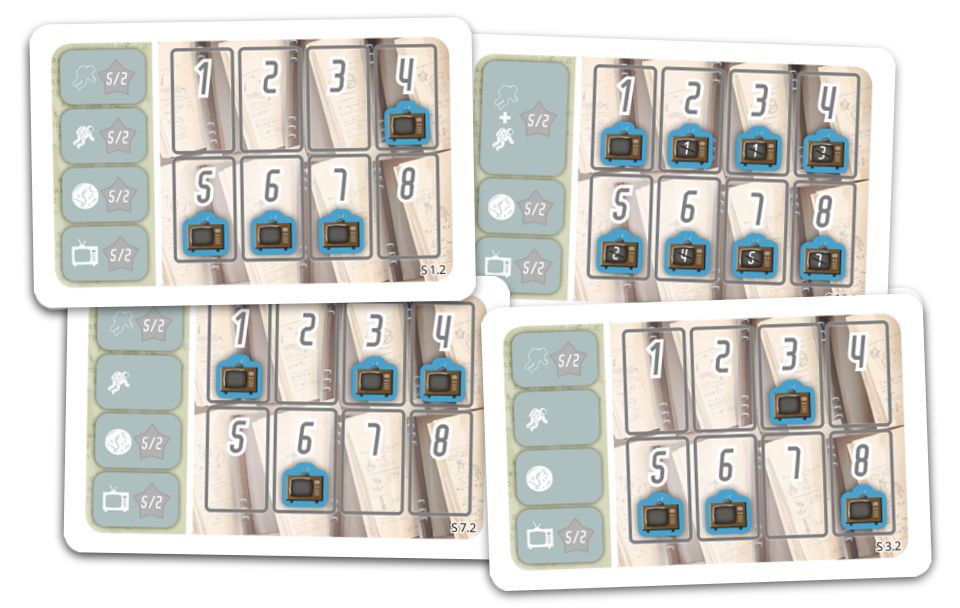
Mission bonuses
With the help of 10 different Bonus Tiles you can randomly or according to your wishes determine which bonuses are available in which round.
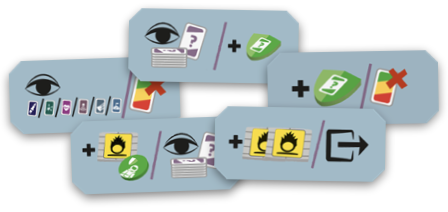
Modules
Additional optional modules are available for even more fun and variety.
The Astronaut Module equips astronauts with special abilities. An astronaut can only solve problems of a certain technology.
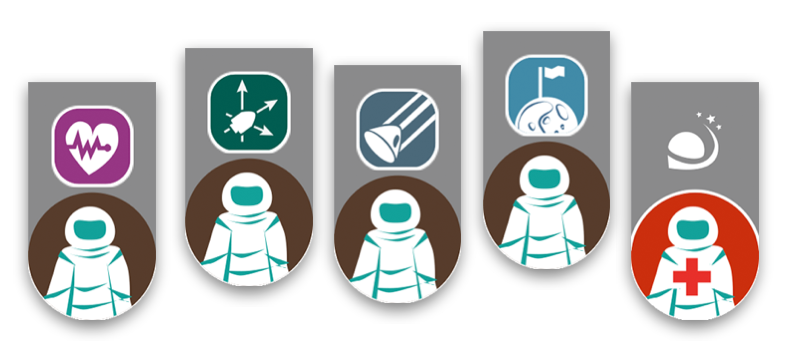
In the Experience Module, you try to gain as much space experience as possible with your astronauts. It can be combined with the astronaut module.
With the help of the Solo Module, you can play alone against an opponent controlled by cards (Automa).
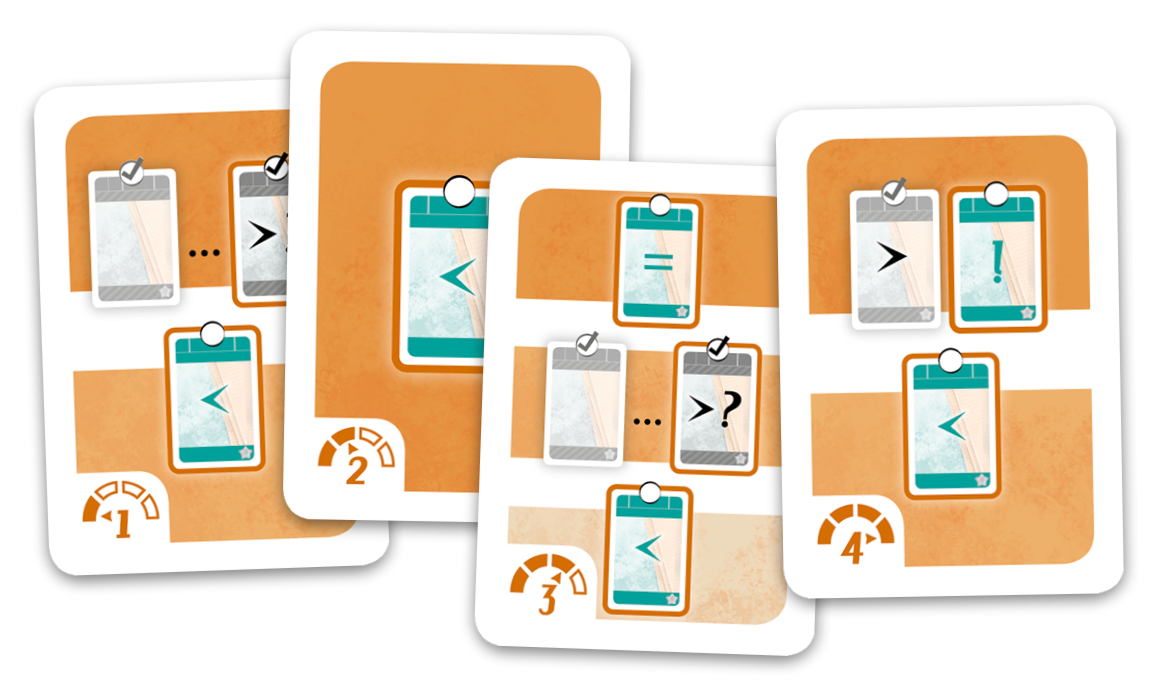
Rulebooks
Gaming platforms
A free prototype is available on the following platforms:
1 to 4 player (ger. / engl.)
Tabletop Simulator
1 to 4 player (ger. / engl.), scripted.
The scripted version guides players through the game, making it easier to get started.
Reviews
Brettspielgarde (german)
Abgewürfelt - Der Brettspiel-Kanal (german)
Creation
The idea for Space Missions was born in 2018, when I played the game Lift Off by Jeroen Vandersteen at the Messe Essen. The game fascinated me, but I was missing the risk and excitement that are still associated with every rocket launch today.
After a search on the Internet, I could only find one game that took this aspect into account: Leaving Earth by Joseph Fatula. From my point of view it is more a simulation where you have to calculate a lot than a game. So I started with the development of Space Missions.
2019 marked the 50th anniversary of the first manned moon landing. Reason enough for some Kickstarter to launch more games on this topic. Only the game Rocketmen by Martin Wallace has incorporated the risk of space missions in its deck building game, but rather superficially. The theme and game mechanics are completely independent of each other.
Unlike many other games of this genre, Space Missions is free from economic aspects. As in the 1960s, the objective is to carry out the prestigious missions before the competition. Planning ahead is just as important for success as the right amount of risk-taking.
